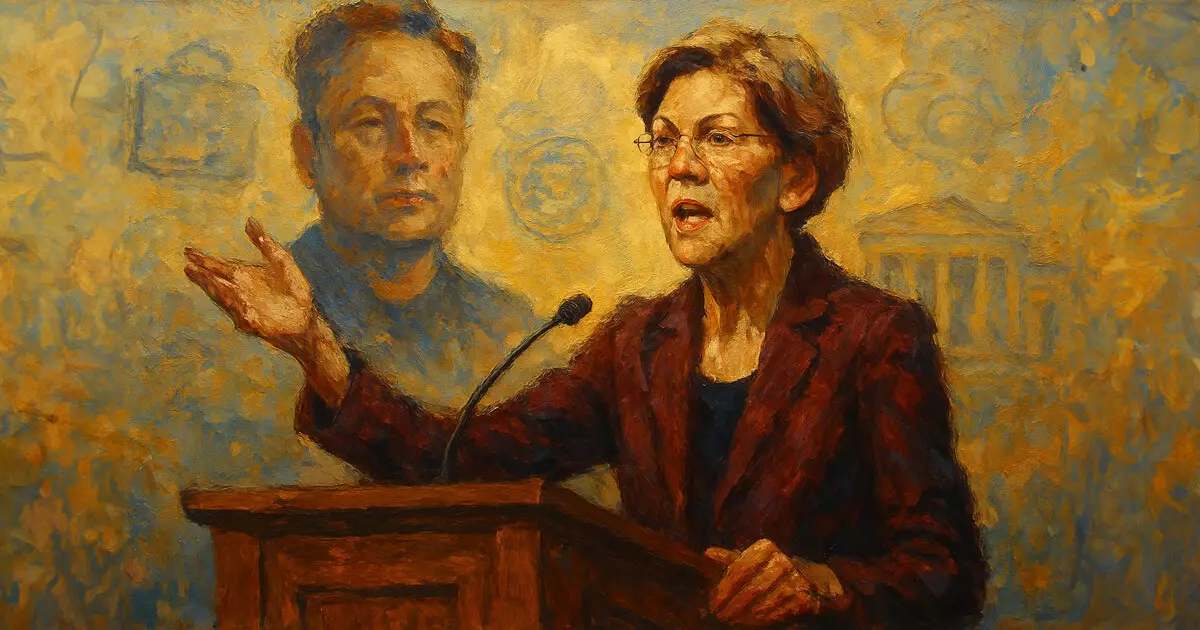The discussion around ethical governance has taken a significant turn with the introduction of the Special Government Employee Ethics Enforcement and Reform (SEER) Act. Spearheaded by Senator Elizabeth Warren, this legislative move directly addresses the ethical ambiguities surrounding Special Government Employees (SGEs), such as the notorious Elon Musk and other high-profile advisors with substantial corporate affiliations. As the nature of their roles allows them to intertwine private interests with public service, it is only logical to impose stricter guidelines that reflect the complexity of their responsibilities.
A Call for Transparency and Accountability
Senator Warren’s insistence on transparency is not merely a belligerent stance; it is a necessary demand to safeguard public trust. With SGEs permitted to serve federal roles for up to 130 days without strict disclosure requirements, we find ourselves in a precarious situation. The loopholes present in the current legislation allow these individuals to potentially exploit their government positions for personal financial gain, defying the fundamental principle of accountability in our political system. Transparency isn’t just a buzzword—it is a crucial tenet of democracy that combats the erosion of public trust.
Unpacking Conflict of Interest Concerns
One cannot overlook the implications of high-profile individuals interacting with federal agencies while maintaining vested interests in their private enterprises. The proposed SEER Act, through stricter conflict-of-interest rules, sets out to prohibit SGEs from engaging in any advisory role with agencies that govern their corporate interests. This regulation isn’t just an ethical enhancement; it’s a necessity to mitigate any perception—or reality—of collusion. When leaders from corporate giants like Musk, who profit substantially through government contracts, are involved in crafting federal policy, the result can potentially skew public service in favor of those very interests. It’s about time we scrutinize the fine line between public duty and corporate greed.
A Broad Coalition of Support
The broad coalition backing the SEER Act demonstrates a unifying understanding of the need for reform beyond traditional party lines. By rallying support from diverse advocacy groups, the message is clear: ethical governance is non-partisan. Organizations ranging from Public Citizen to the National Treasury Employees Union (NTEU) highlight the societal demand for accountability in government. It is refreshing to see such varied entities converge under one mission: raising ethical standards to thwart any possible misuse of power. Engaging all voices will ensure that the SEER Act encompasses a robust framework that represents the interests of the American public.
The Future of Ethical Governance
Introducing the SEER Act is not about demonizing influential figures—it’s about reclaiming governmental integrity. The legislation’s potential to mandate public access to conflict-of-interest waivers empowers citizens with information crucial for holding their leaders accountable. As we stand at this crossroads of potential reform, we must recognize that a government tethered firmly to ethical standards is not just beneficial—it’s vital for a democratic society. If we choose to be complacent and overlook the ethical dimensions of governance, we risk sacrificing the very foundation on which our democracy rests. The SEER Act may just be the catalyst we need for a more responsible and transparent government.

